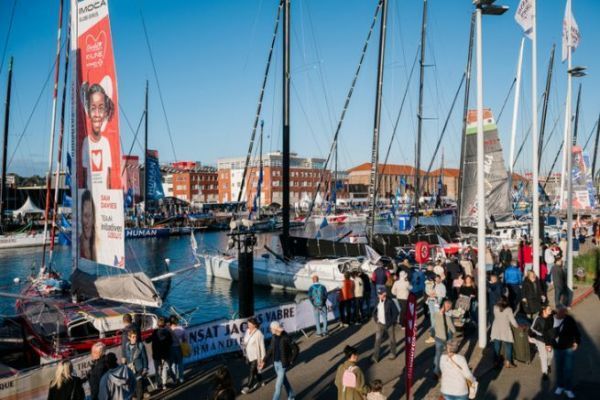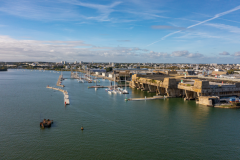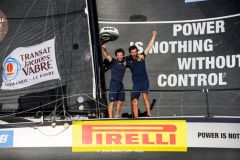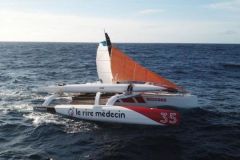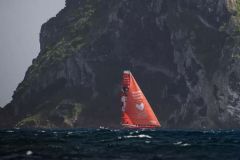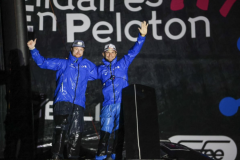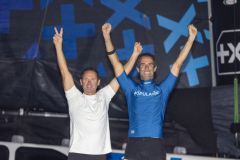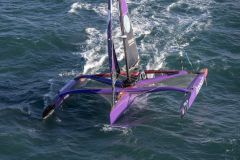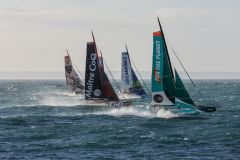A rigorous registration protocol
The Transat Jacques Vabre is a double-handed sailing race. Held every two years, it links Le Havre to a city on the other side of the Atlantic. It regularly welcomes 3 classes of boats: Ocean Fifty, IMOCA and Class40. Ultim trimarans can also take part in some cases, as in the 2021 and 2023 editions.
Although it attracts mainly professional sailors, being a qualifier for some of the major races on each circuit, it can also be raced by amateurs, subject to a few conditions. Indeed, the Jacques Vabre registration protocol is cumbersome, and participants must meet numerous conditions, which is easier for professional skippers.
Register online and pay registration fees
Each skipper must complete an online entry form and pay the full entry fee. The amount varies according to the class:
- 6,000 excl. tax for Class40 boats
- 16,000 excl. tax for IMOCA boats
- 10,000 excl. tax for Ocean Fifty
- 45,000 excl. tax for Ultim
For a class to be entered in the event, a minimum of 4 boats must be registered before June of the year of the race. If the quota is exceeded, the race organizer may select the entries it wishes. Two crews may also be selected outside the selection rules.
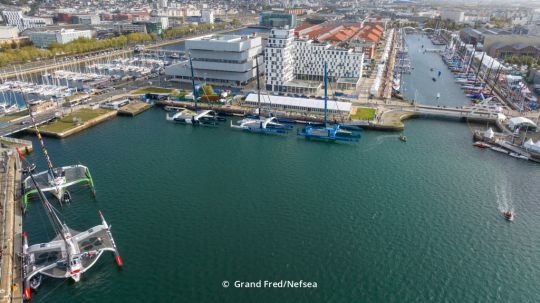
Qualify to take part in the Transat Jacques Vabre
IMOCA and Class40 boats must take part in qualifying races before they can hope to take part in the race. Three races are offered to Class40s: the CIC Normandy Channel Race, Les Sables - Horta, double-handed, and the Rolex Fastnet Race, also double-handed. For IMOCA boats, miles must be accumulated in the Fastnet, double-handed, or the Guyader Bermuda 1000 Race.
If no qualifying race has been run, the crew and boat must complete a qualifying course. This may also be requested in addition. The crew may also complete an observation course - at the discretion of the race organizer - different from the qualifying course.
There are two ways of doing this:
- 1,000 miles in one go
- This means a double-handed race of a minimum of 500 miles and a complementary course that will bring the total to 1,200 miles.
At least 120 miles of this course must be run in force 5 wind and sea conditions, and in race configuration.
The qualifying course includes six gates, all of which must be passed through by the crew, either clockwise or anti-clockwise. Each crew can choose its starting and finishing gates. The course must be completed within a given time, between March and September.
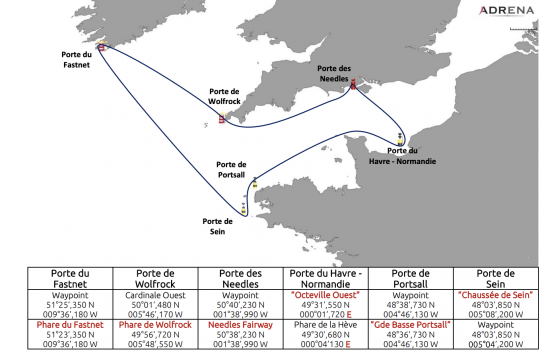
Who is eligible to race the Transat Jacques Vabre?
skippers must be at least 18 years old to take part in the race. All skippers must be in good standing with the national authority of their country of nationality or residence, and hold an FFVoile license, or equivalent for international skippers. When registering, international skippers must present proof of membership of a World Sailing member national authority, proof of valid third-party liability insurance with a minimum cover of three million euros, and a medical certificate of no contraindication to competitive sailing less than one year old.
Documents and diplomas required to validate registration
For French skippers, two types of license are accepted:
- A FFVoile "competition" license
- A FFVoile Club "membership" or "practice" license accompanied by a medical certificate of no contraindication to the practice of sailing in competition dated less than one year.
In addition to these documents, participants must provide other items such as :
- A valid World Sailing course certificate - Survival Training + Sea First Aid - or a certificate of survival training and a certificate satisfying RSO 6.05
- Advertising map 2023 if applicable ;
- Restricted Radiotelephone Operator's Certificate or equivalent ;
- Ship station license
Several medical documents are also required to prove that the skipper is in good health and that there are no contraindications preventing him from taking part in the event:
- The completed medical form, which must include the date, stamp and signature of the doctor endorsing the information requested, as well as the date and signature of the competitor,
- Cardiac ultrasound report,
- Maximum effort test report less than 4 years old,
- Biological check-up less than 2 years old, including at least CBC, ionogram, urea, creatinine, liver test, fasting blood sugar.
